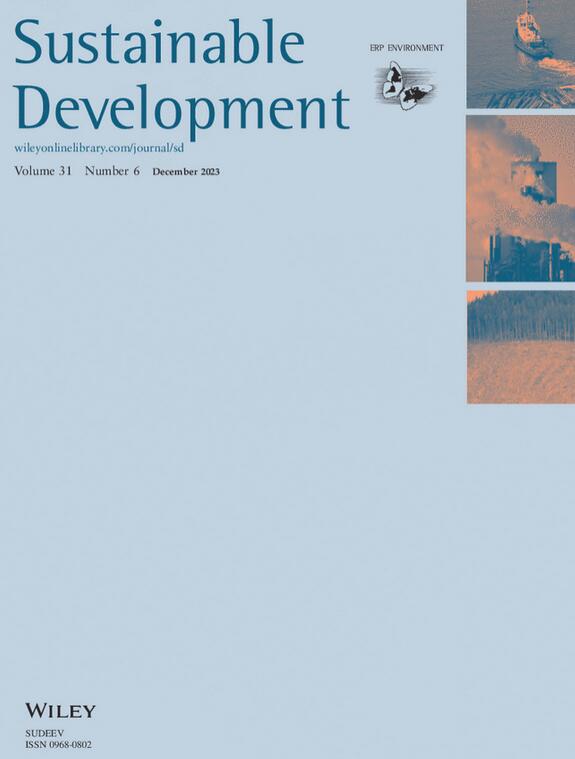非洲的粮食价格和贫困
IF 8.2
1区 环境科学与生态学
Q1 DEVELOPMENT STUDIES
引用次数: 0
摘要
本研究调查了2001年至2020年间37个撒哈拉以南非洲经济体的食品价格对贫困的影响。该研究采用了Prais - Winsten回归,固定效应模型的变体来解释计量经济建模中的传统偏差,并使用固定效应矩分位数回归方法来解释现有的贫困水平。调查结果显示,由于食品价格上涨,更多的非洲人将陷入贫困。这一结果与内生性、横断面依赖性和不可观察异质性的存在是一致的。该研究还表明,与高贫困水平的国家相比,粮食价格上涨对撒哈拉以南非洲贫困水平较低的国家的影响更大,表明粮食价格上涨对低贫困水平的国家造成了不成比例的伤害,使这些国家的更多非洲人陷入贫困线以下。该研究建议有必要实施供给侧农业政策,以提高该部门的生产率,从而增加农业总供给,并促使粮食价格下降。本文章由计算机程序翻译,如有差异,请以英文原文为准。
Food prices and poverty in Africa
Abstract This study investigated the effect of food prices on poverty in 37 sub‐Saharan African economies between 2001 and 2020. The study employed Prais‐Winsten regression, variations of the Fixed Effects model to account for conventional biases in econometric modeling, and the Method of Moment Quantile Regression with Fixed Effects to account for existing poverty levels. The findings revealed that a higher proportion of Africans will fall into poverty due to the increase in food prices. This result is consistent with the presence of endogeneity, cross‐sectional dependence, and unobservable heterogeneity. The study also reveals that the increase in food prices has a greater effect in sub‐Saharan African countries with lower levels of poverty as compared to those with high poverty levels, showing that rising food prices disproportionately hurt countries with low poverty levels, pushing more Africans below the poverty line in those countries. The study recommends the need for the implementation of supply‐side agricultural policies that enhance productivity in the sector, thereby boosting aggregate agricultural supply and precipitating a decline in food prices.
求助全文
通过发布文献求助,成功后即可免费获取论文全文。
去求助
来源期刊

Sustainable Development
Multiple-
CiteScore
17.30
自引率
11.20%
发文量
168
期刊介绍:
Sustainable Development is a publication that takes an interdisciplinary approach to explore and propose strategies for achieving sustainable development. Our aim is to discuss and address the challenges associated with sustainable development and the Sustainable Development Goals. All submissions are subjected to a thorough review process to ensure that our readers receive valuable and original content of the highest caliber.
 求助内容:
求助内容: 应助结果提醒方式:
应助结果提醒方式:


